The 1970s were a wild time for television, and game shows were no exception. With big personalities, suggestive humor, and unpredictable contestants, these programs pushed boundaries in ways that would never fly today. From moments that were hilariously awkward to those that were outright shocking, these game show antics reflected a different era of entertainment. Let’s dive into 13 of the most famous and over-the-top game show moments from the ’70s that wouldn’t stand a chance on air now.
1. Richard Dawson’s Infamous Kissing on Family Feud
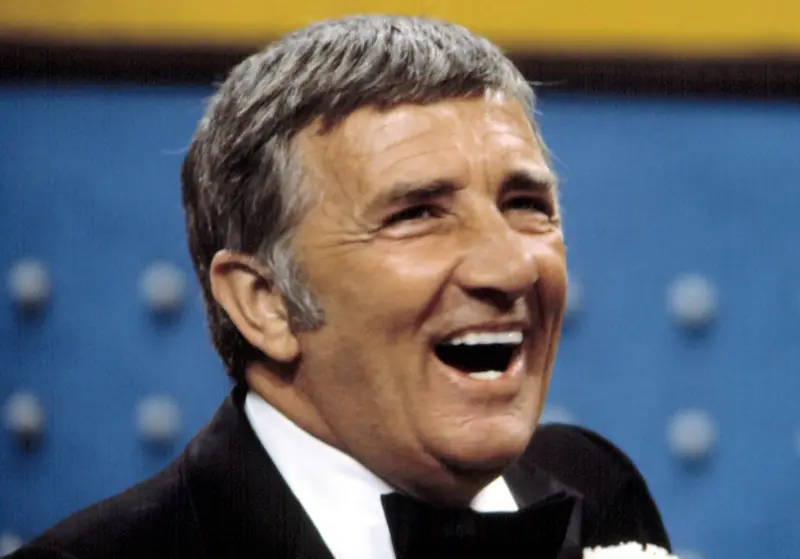
Richard Dawson became as famous for his on-air kisses as he did for hosting Family Feud. In almost every episode, Dawson would kiss female contestants on the lips, regardless of their age or marital status. This behavior was presented as charming and playful at the time, but it would be seen as invasive and inappropriate today.
Modern audiences are far more attuned to issues of consent and workplace boundaries, and such behavior would spark immediate backlash. While Dawson’s charisma made him a beloved host, this particular habit hasn’t aged well in a world that values respect and professionalism.
2. The Risqué Double Entendres on Match Game
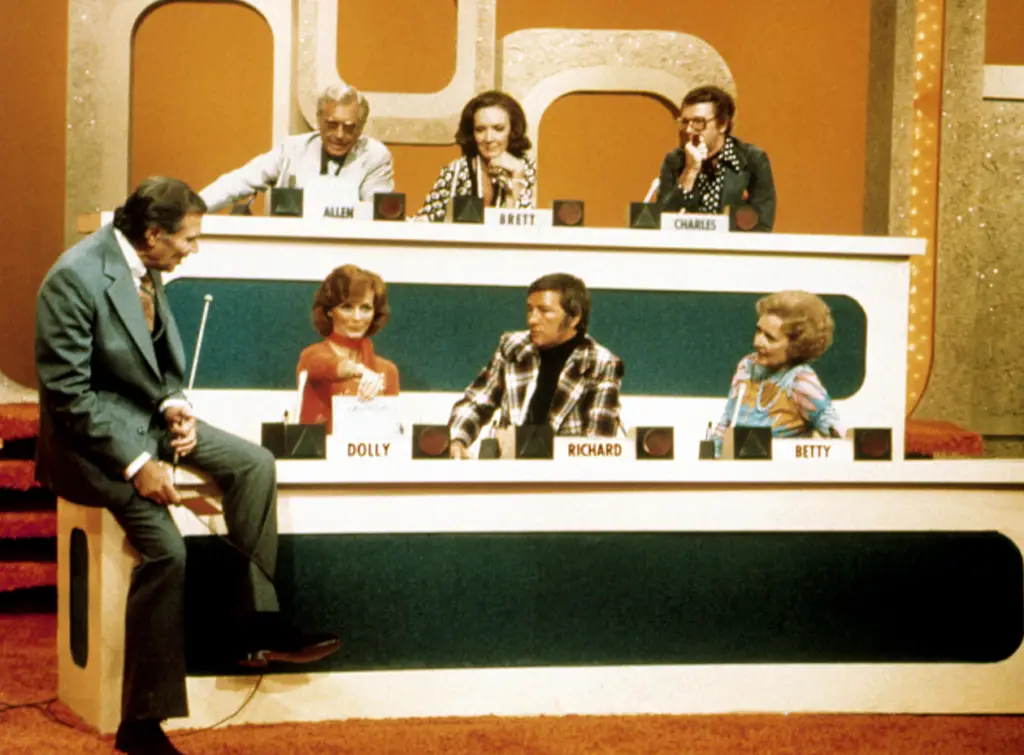
Match Game was known for its bawdy humor and suggestive questions, often skirting the line between cheeky and inappropriate. Questions like “Mary said, ‘John’s blank is so big, it needs its own zip code!’” were designed to provoke outrageous answers from contestants and panelists. While the humor was a hit in the freewheeling ’70s, it would likely be seen as too risqué for daytime TV today.
The show’s suggestive tone was part of its charm, but it also reflected a time when boundaries around humor were looser. Today, such innuendo might feel out of place in a game show format, especially given the shift toward more family-friendly entertainment.
3. Bob Barker’s Bikini-Clad Models on The Price Is Right
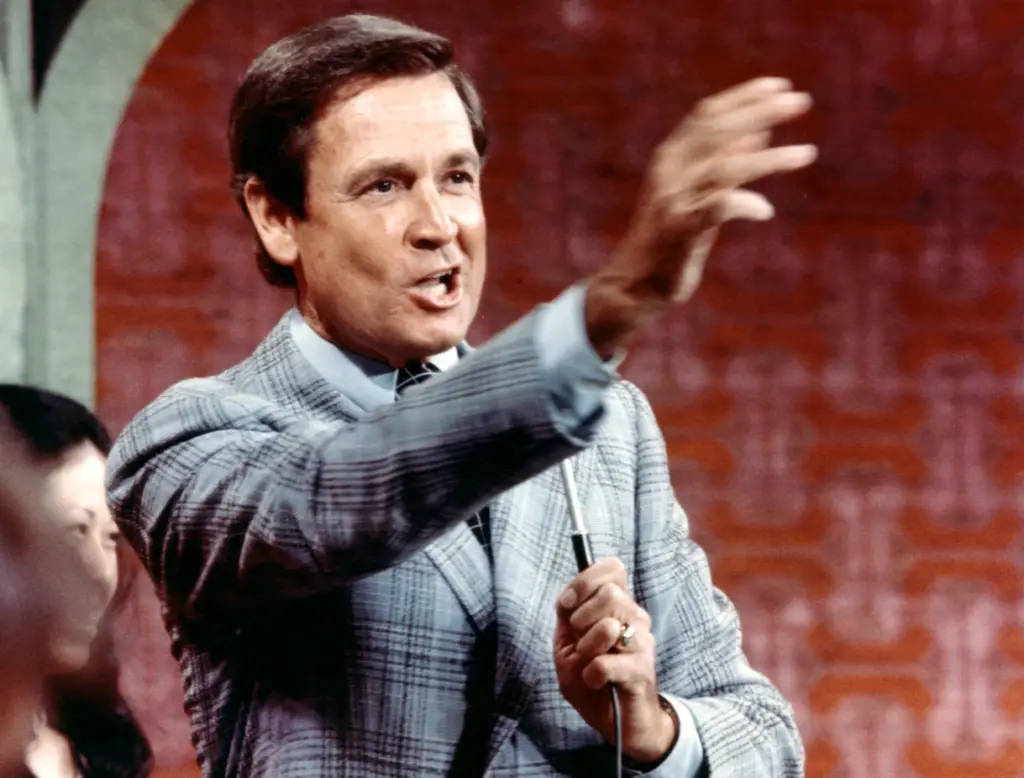
On The Price Is Right, Bob Barker’s “Barker’s Beauties” were a staple of the show, often appearing in skimpy outfits to present prizes. While this was seen as glamorous in the ’70s, it would now face criticism for objectifying women and reinforcing outdated gender roles.
Modern game shows have shifted toward featuring more diverse and equitable representations of contestants and staff. The use of scantily clad models feels out of step with today’s push for inclusivity and respect in media.
4. The Notorious “Newlywed Game” Answer
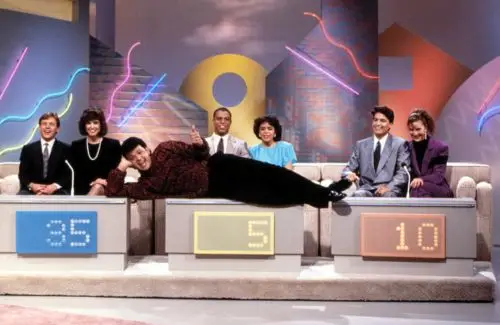
One of the most infamous moments in game show history occurred on The Newlywed Game when host Bob Eubanks asked a wife, “Where is the weirdest place you’ve ever made whoopee?” Her unfiltered response, “In the butt, Bob,” shocked audiences and became an urban legend for years. While it was a laugh-out-loud moment, it would likely be deemed too explicit for television today.
Modern standards for network TV emphasize avoiding overly explicit content, even in humorous contexts. This moment remains legendary, but it also underscores how different the cultural norms of the ’70s were.
5. Chuck Barris’ Antics on The Gong Show
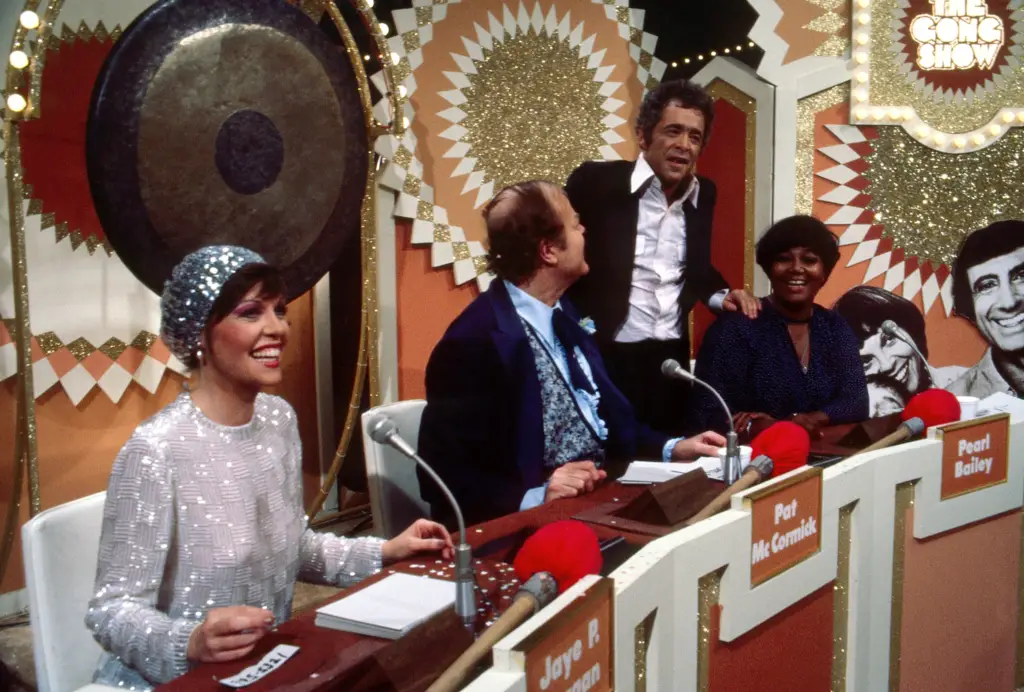
The Gong Show was the epitome of ’70s absurdity, with host Chuck Barris reveling in the chaotic antics of the contestants and panelists. From outrageous acts to Barris’s own bizarre behavior, the show thrived on unpredictability. One particularly infamous moment involved a contestant miming inappropriate acts with a popsicle, which was quickly cut off by the gong.
Today, such a segment would be deemed far too outrageous for mainstream television. While the show’s anything-goes attitude made it a cult favorite, it also highlighted how far TV would push boundaries for entertainment value.
6. Gene Rayburn’s Suggestive Behavior on Match Game
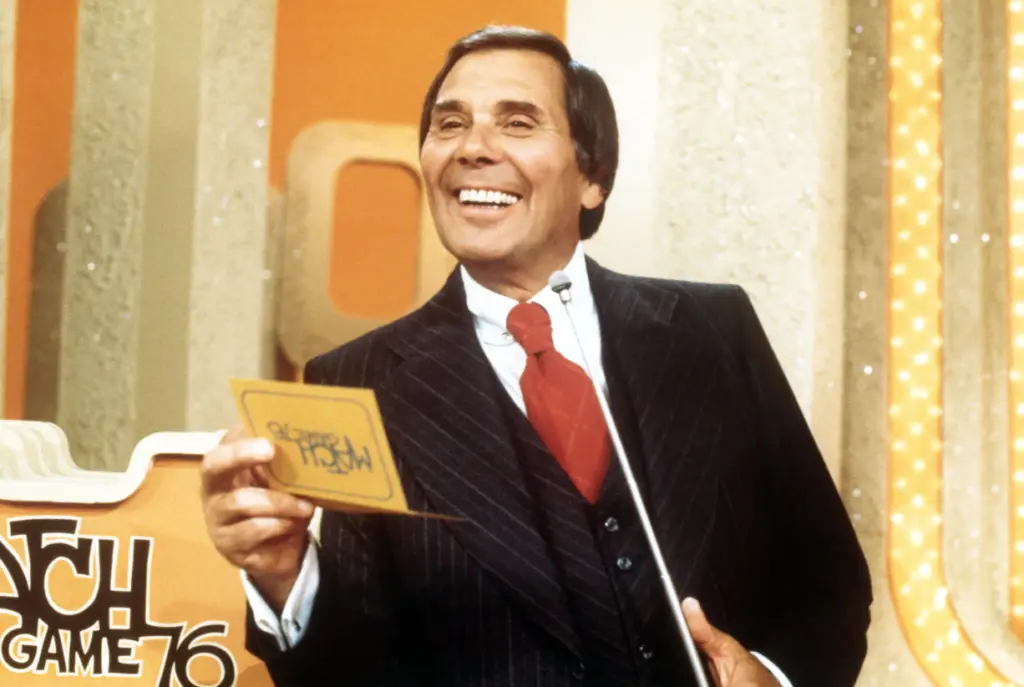
Gene Rayburn, the host of Match Game, was beloved for his wit, but his behavior toward female contestants occasionally crossed the line. There were moments when his comments or actions, such as kissing or overly personal remarks, felt uncomfortable even by ’70s standards.
Today, such behavior would be criticized for its lack of professionalism. While Rayburn’s charm carried the show, these moments serve as a reminder of how workplace norms have evolved in the decades since.
7. The “Whammies” on Press Your Luck
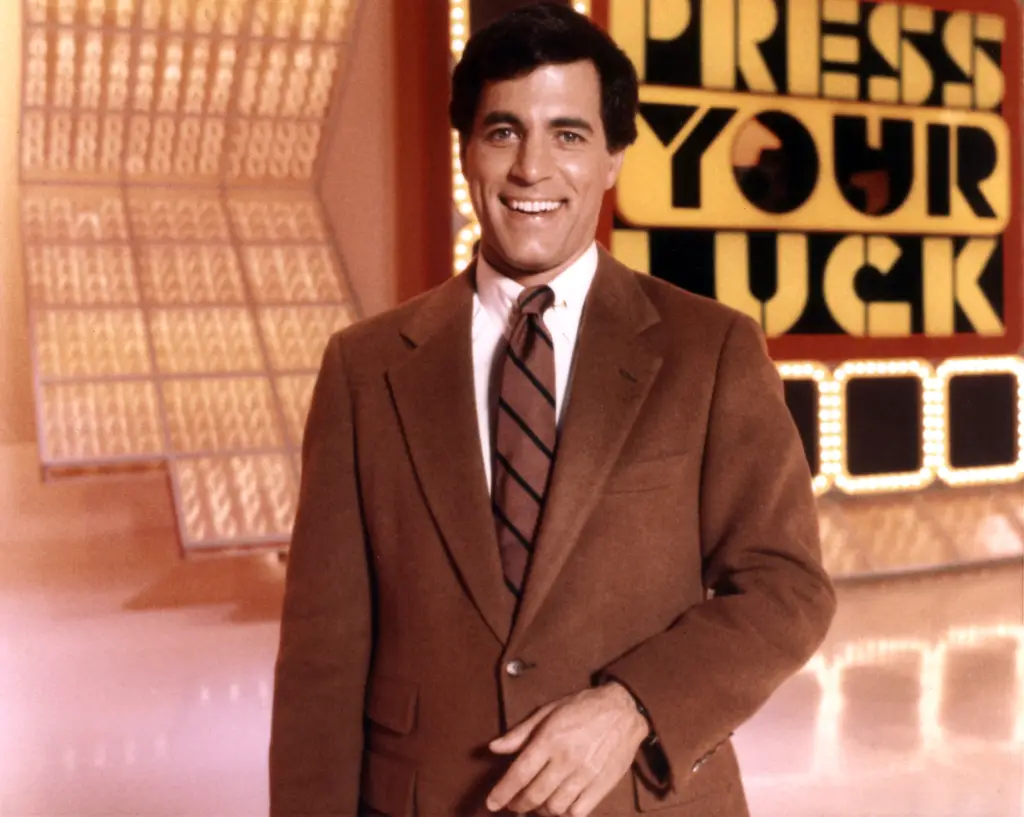
While Press Your Luck didn’t feature overtly offensive moments, the mischievous cartoon “Whammies” occasionally veered into questionable territory. One particular animation depicted a Whammy dressed as a stereotypical cowboy shooting guns in a way that felt more violent than playful.
Today, even cartoon portrayals of violence are scrutinized more closely, especially in family-oriented programming. While Press Your Luck remains a beloved game show, certain elements would likely be reimagined to align with modern sensibilities.
8. Over-the-Top Suggestive Content on Treasure Hunt

Treasure Hunt, hosted by Geoff Edwards, featured a mix of comedy, drama, and outlandish antics, but its treatment of female contestants often raised eyebrows. Women were sometimes subjected to suggestive jokes or placed in awkward situations for the sake of humor.
Such treatment would face significant backlash today, as audiences expect game shows to prioritize respect and inclusivity. The way Treasure Hunt leaned into outdated gender dynamics highlights how much entertainment standards have shifted.
9. The “Dating Game” Pairings
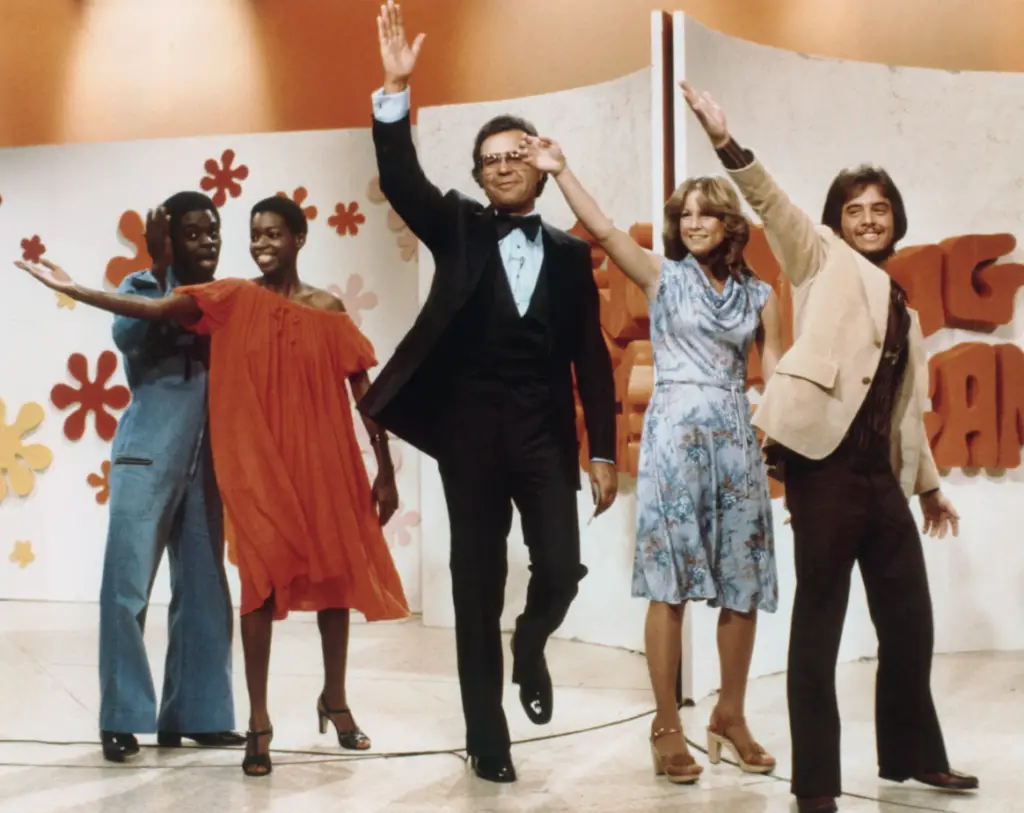
The Dating Game was famous for its playful banter and sometimes outrageous contestants, but some of the pairings raised serious concerns. The most infamous example involved Rodney Alcala, a convicted serial killer who appeared on the show as a bachelor. While his crimes were not yet known, the lack of vetting for contestants would be unimaginable today.
Modern game shows have far more rigorous screening processes to ensure the safety and well-being of participants. This chilling moment serves as a reminder of how important these precautions are.
10. Bob Barker’s Awkward Interactions with Contestants
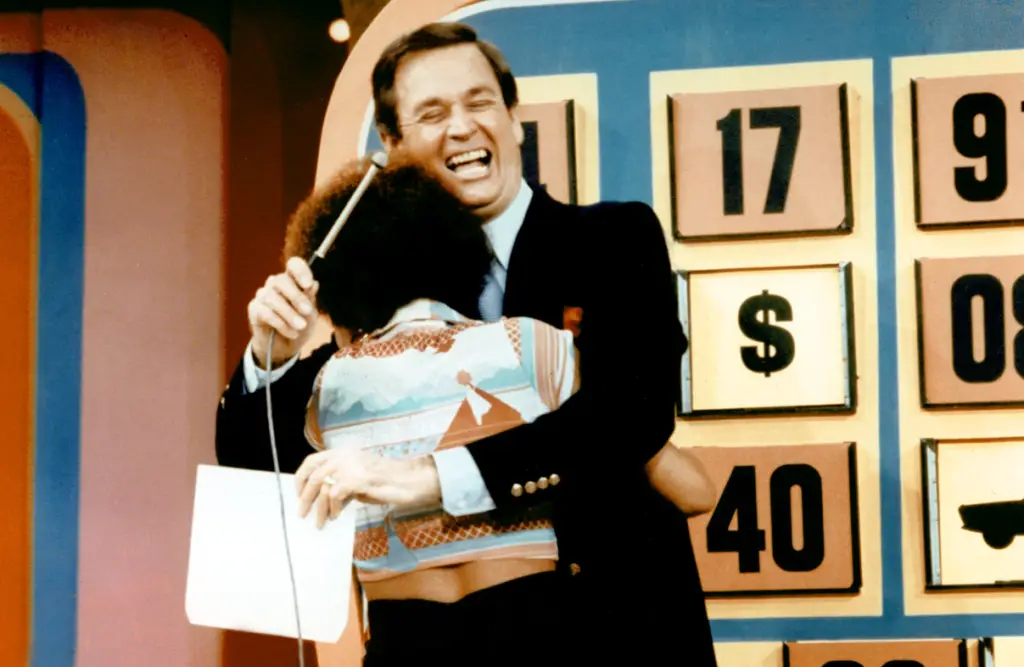
While Bob Barker is an iconic game show host, his interactions with female contestants on The Price Is Right sometimes bordered on uncomfortable. Moments where he made suggestive jokes or commented on their appearances would likely be deemed inappropriate by today’s standards.
Such humor, while common in the ’70s, feels out of place in a more respectful and professional media environment. Barker’s legacy as a beloved host remains intact, but these moments highlight the cultural shifts in workplace conduct.
11. Raunchy Humor on Hollywood Squares
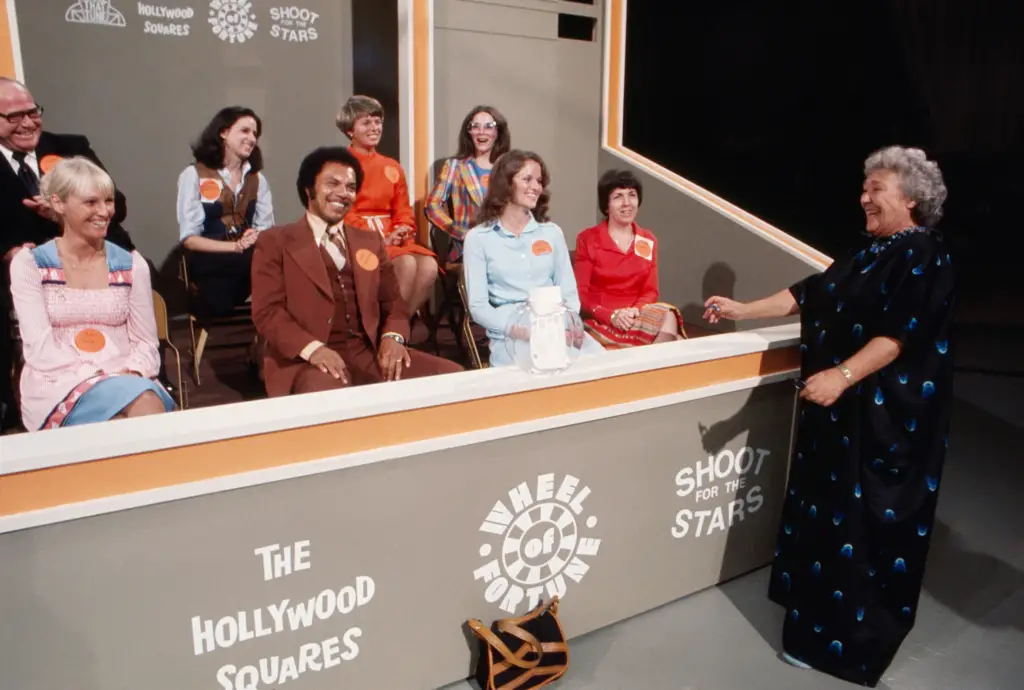
Hollywood Squares relied on quick wit and comedic banter, but the jokes often veered into raunchy territory. Celebrities like Paul Lynde were known for their double entendres, which pushed the boundaries of what was acceptable for TV at the time.
While the humor was part of the show’s charm, it would likely be toned down for modern audiences, who expect cleaner content on daytime television. The line between edgy and inappropriate has moved significantly since the ’70s.
12. The Tiebreaker Kiss on The Dating Game
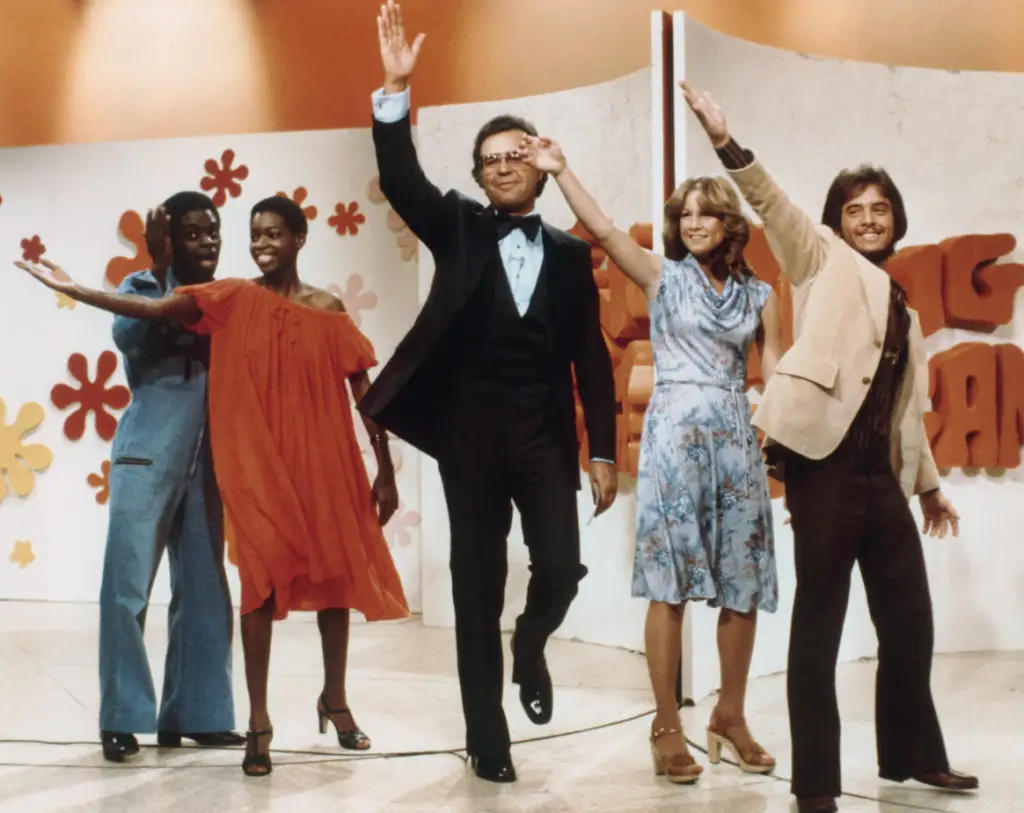
On The Dating Game, it wasn’t uncommon for contestants to seal the deal with a kiss at the end of the show. This practice, which was often encouraged by the host, feels out of place in a modern context where consent and personal boundaries are prioritized.
Today, such expectations would likely spark backlash for pressuring contestants into uncomfortable situations. This habit reflects how much attitudes toward personal autonomy have evolved.
13. The “Fickle Finger of Fate” on Laugh-In
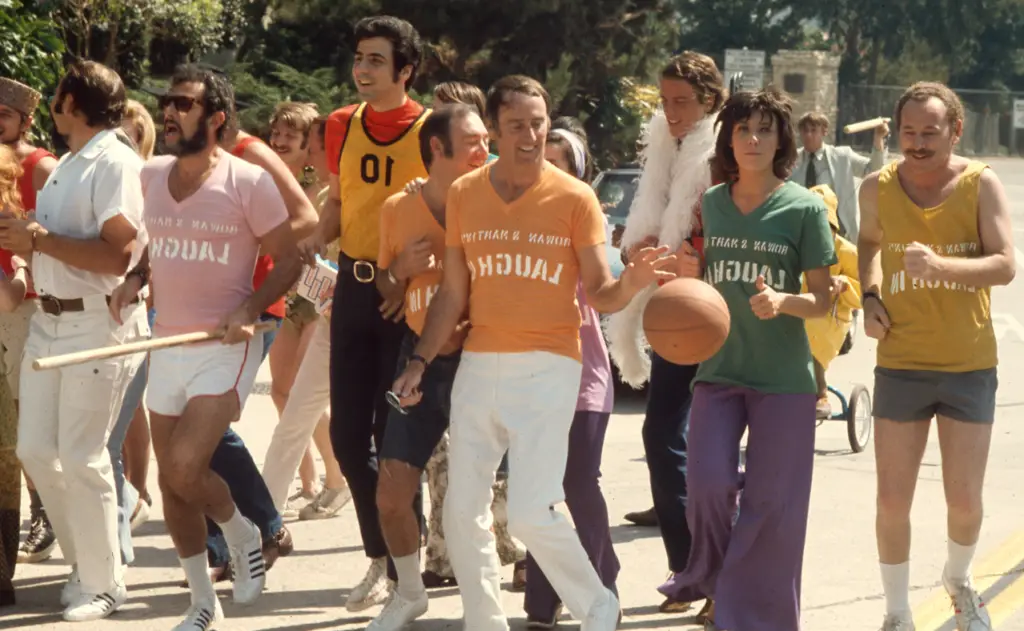
While technically a comedy show, Laugh-In featured game show-style segments that often pushed boundaries. The infamous “Fickle Finger of Fate” award mocked public figures or institutions in a way that would likely be considered mean-spirited today.
Such humor, while biting and clever for its time, would face scrutiny for being overly harsh in the modern media landscape. It’s a reminder of how satire has evolved to balance humor with sensitivity.
The 1970s were a different time, and these over-the-top moments reflect a culture that often prioritized shock value and humor over sensitivity. While these moments are still remembered for their entertainment value, they also serve as a snapshot of how far television—and society—has come.


